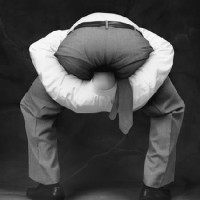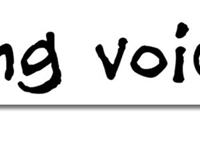Note:
If you’re looking for training on “how to deescalate anyone in three easy steps” then you’ll not find it here.
However, if you are looking for opportunity to both examine the orthodoxy and trenchant mental models that underpin and restrict our thinking and acting, and how we design and operate services in way that all to often are experienced by those who rely on them as dehumanizing, oppressive, and traumatizing; and that lead us to believe that is our only option; and if you believe that “we can do better – and we must,” then this may a good place to start.
UN_ESCALATE: Aim
The overall aim of this workshop is that participants are better able to reduce the number and impact of situations in which those seeking support from services experience that in ways they find dehumanizing, degrading and oppressive.
Why “UN_ESCALATE” ?
Recent times have made yet more visible the extent to which those who have been pushed out to the margins of society are stressed, beyond their “zone of tolerance” for the way they find themselves treated: the way services deem is the best they can expect.
Workers in services equally feel stressed, and struggle to reconcile best supporting those who come to them and the demands of the organization they work in.
When most stressed we tend to default mode: we download language of “escalation”, “de-escalation”; we heap expectation on staff to be experts in “deescalating” those we deem to be “escalating” and in-need-of “de-escalation”. Behaviour interpreted as aggressive is responded to with yet more aggression and authoritarianism: sometimes overt, more often pernicious yet equally injurious.
“The system” is not failing: it produces the results it was designed to produce. Services are all too often experienced by those who find they need to access for support in meeting needs as injurious, traumatizing and oppressive. Meanwhile service organizations espouse values of “anti-oppression” and “trauma informed”.
Models of “deescalation are typically from, or rooted in those from, war studies.
Are we waging (yet another) war ?
Or are we seeking to the needs of those who have been most marginalized- cast out – from society in ways that can support (re)connecting, learning, and healing ?
Q. How can we begin to question current practices and habits – and the underlying assumptions they are both built upon and limited by ?
Q How might we begin to build approaches and practices at individual, team, and organization levels that are rooted not in fear, authoritarianism, containment, compliance and control but in connecting, and learning, and healing?
Q. How might we build a different approach to working through difficult situations that rely less on more authoritarianism, control, coercion, and compliance and instead focus on building relationships that can enable and support healing ?
Two Day Workshop:
UN_ESCALATE
Tue 20th & Wed 21st JUNE 2023
9:30am to 5:00pm
FEE: $400
Location:
Church of The Holy Trinity
Trinity Square
Toronto
Note – This workshop is in person only.
Note – This workshop takes place on 1st Floor, there are two flights of stairs.
UN_ESCALATE is…
- Different, and intentionally so.
- Starts in a different place and carves a different path.
- Shares ideas, tools from many sources including: systems thinking and relational dynamics, peace building, peer support, health promotion.
- Focused on ways we can critically examine how services are designed and operated , to not do – or to undo – some of the many things that get done to people who access services that lead them to react in ways that get called “escalating” and results in them being deemed a “person in need of de-escalation”.
If we do this then, maybe, we’ll find ourselves thinking that we need to “de-escalate” another person less often.
“Yeah, we do things round here all the time that ‘escalate’ people.”
UN_ESCALATE : Some basic assumptions.
- No individual escalates all by themself. We each “escalate“: in response to [something in] our environment, and in context of our whole life experience.
- Whatever a person is doing is both an expression of a deeply felt need, and a survival response.
- Whatever survival response we tend to fall back on is likely one that we’ve learned from how life has treated us and one that’s worked so far… but is also not the only one and may not the best one for this moment.
- The only person I can “de-escalate” is me. None of us can “de-escalate another”.
- We can though, de-escalate the situation in which we both find ourselves.
Questions
- Q. How might we draw upon experiences of being in the role of worker required to “de-escalate” a person said to be “in need of de-escalation”?
- Q. How might we draw upon experiences of having been that person said to be “in need of de-escalation”?
- Q. How might we go beyond the operationalization, steps, and rules-based approach of “de-escalation” and instead UN_ESCALATE?
This is a TWO DAY workshop.
Two full days
IN PERSON [How we gonna change the world by hiding behind screens and sitting in our pyjamas?]
Learning Aims and Objectives
Aim
The overall aim of this workshop is that participants are better able to reduce the number and impact of situations in which those seeking support from services experience that in ways they find dehumanizing, degrading and oppressive.
And, especially ..
When working with individuals who have been marginalized and stigmatized…
In those encounters that that lead a person seeking support to react in ways that services then deem that individual to be “escalating” and “in need of de-escalating”.
Also, that staff in services feel better equipped, more competent, and better able to work in ways that they can bring forth their full humanity and enjoy their work.
The goal? :
Number of encounters experienced by clients as as oppressive: zero.
UN_ESCALATE: Learning Objectives
Participants in this workshop will be better enabled to:
- Recognize for many of those who seek support from health and other services that their experience of doing so can often be degrading, dehumanizing and oppressive.
- Inquire into our current practices, habits, and the underlying assumptions informing them; and how they can contribute to clients often experiencing services as degrading, dehumanizing and oppressive.
- Understand the complexity of dynamics at work in a situation we might call “escalating”.
- Explore new models of understanding and working with situations we call “escalation” that are less violent, coercive, oppressive and more focused on building relations that promote connecting, healing,
- Recognize the part we might play in generating or contributing to a situation that might be regarded as “escalation” – when in the roles from designing and directing to daily running of services that many people experience as oppressive.
- Identify ways we can act differently to reduce the likelihood of “escalation” arising, and to reduce the damaging impact whenever it does.
- Reduce defensiveness in-after-action reviews and debriefings following encounters that go all “Pete Tong”
- Work in ways that can reduce both the number and severity of instances in which individuals who seek support from services experience that as oppressive.
- Offer support to those seeking services who find it difficult and who wish to enhance their ability to self-advocate: Express their needs for support – in ways that make it more likely they will receive it.
- Offer support to those seeking services who find it difficult and who wish to enhance their ability to Communicate any dissatisfaction they may experience with service in ways that makes it more likely that they will be heard and be addressed.
- Initiate and maintain relations and relationships between those we call “worker” and those we call “client” that are rooted in mutual dignity and respect and, which generate connection, learning and healing.
WORKshop for WORKers…
Sharing ideas, thinking tools and practical stuff you can use so you can suck less.
This workshop is designed to share some ideas , tools and approaches we can use to examine how we can change the way we approach situations in which it is usually said that an individual is “in need of de-escalation”.
- Shares and examines some ideas on how we might look upon and understand how escalation works and how power plays out in that.
- Creates opportunity – to use some of these ideas, individually and or in combination, to examine how we work in services in ways that lead people to “escalate” and generate practical ideas for changing how we work in these situations, including systemic changes and also personal choices we make in how we go about the work.
- Including generating ideas for change in our workplace individual, team and organisation level – or different choices we can make starting from our next shift.
- Skills Practice. Working in small groups, you’ll create real scenarios you come across in your work and want time to practice: thinking, doing differently, using the ideas and tools shared in parts 1 & 2, feeling how it feels in your body, reflecting and building confidence.
- Designed as small, interactive, participatory workshop .
- Spaces are Limited [20 spaces].
- IN PERSON
- NO ZOOM!
Facilitator:
Kevin Healey
Location:
Church of The Holy Trinity
10 Trinity Square
[next to Eaton Centre]
REGISTER NOW
Register online now via Eventbrite using the checkout box below.
If you prefer to go to the full event page at Eventbrite use this link:
https://www.eventbrite.ca/e/un-escalate-jun-2023-tickets-618243080697





































































































You must be logged in to post a comment.